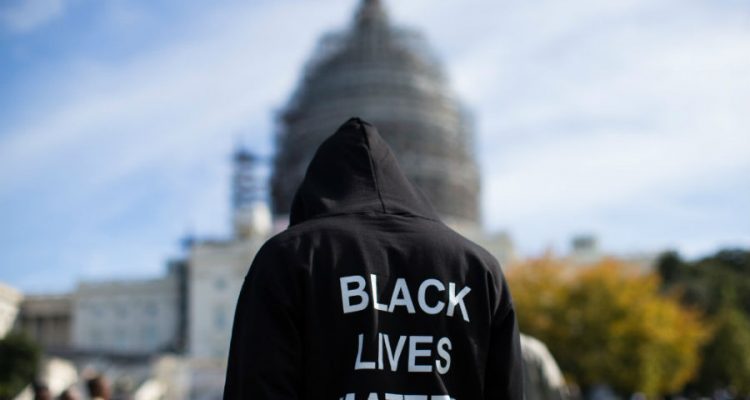Black people don’t have political power at the federal level.
We don’t. We are 13.3% of the entire United States population. When you subtract the number of individuals legally ineligible to vote; children under 18, convicted felons, the incarcerated, the mentally disabled, and unregistered constituents, that number decreases. When you consider the percentage of people legally allowed to vote, we still have to subtract the people that willfully don’t vote, as well as the percentage of individuals that are low income, elderly, physically disabled or students because these demographics are disproportionally disenfranchised by voter identification laws, early registration laws and lack of accessibility at voting stations. This leaves the percentage of people that are successfully able to cast ballots, which could be anywhere from approximately 4% – 9% of the entire black population depending on the specific election. This range must be further broken down into those who vote Democratic, Republican, or for a third party candidate. So, even if the percentage of Black people successfully able to cast votes could collectively agree on a candidate, we simply don’t have the numbers for significant federal political pull.

Not to mention, we also have small representation in Congress. There are 535 total members in the legislative branch. But, there are 49 African Americans in the House of Representatives and 3 African Americans in the Senate. Finally, comparatively, we do not have wealth. In addition to our late start to generational wealth – read: Slavery, the 13th Amendment, the Reconstruction Era, Jim Crow, and now the discriminatory ghosts of centuries of injustice, Black men make less than White and Asian men. Black women makes less than White, Asian men and women and also Black men.

But we knew this.
We know that we are the margin of American society. People can only be marginalized if they have something to compare their marginalization to, and unfortunately we are very aware that as an aggregate group of people we are the measuring stick for inequality. So, we march, rally, protest, boycott, inform ourselves, do community service, retreat into ourselves in predominately black spaces. Or, we don’t. Instead, we’ll focus on our education or creative passions then enter tax brackets that distance us from the margin, or some intersection of the two.
But, deep down, there are many issues for which we as Black people collectively no longer hold out hope. Yet, there are things we still do to maintain a sane position within this reality, like voting; a symbolic gesture that makes us feel like we can affect change even though as we cast our ballots many of us don’t actually expect to. I mean, the 2016 political agenda of Black Lives Matter is not that different from the 1966 Ten Point Program of the Black Panthers.
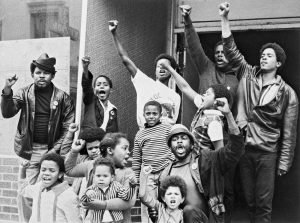
It seems that this realization, a.k.a the nigga moment, the moment we realize that despite _____, we are still in fact niggas, is the exact point that Black people dismiss government. This abstract system responsible for managing the state is the most tangible manifestation of our oppression. So, we condemn it and set out to live a life that limits the amount of times this system can muster the audacity to remind us that all of what our ancestors built was never intended for us to enjoy.
Except, this isn’t where the story ends, not even close.
Words mean things and before we even begin to unpack what’s going in in the current political circuit; American healthcare debates, the fallout of Trump’s Russian collusion, North Korean missile testing, Kenya’s presidential election, Venezuela’s attempt to rewrite its entire constitution, or the fact that Flint, Michigan still doesn’t have new infrastructure for clean water, etc., we need to step back and figure out which words mean exactly what things so we know how to think as we absorb these realities.

So, let’s start at the beginning by defining politics and defining power. Politics is the process for determining who gets, or who does not get, what, how much, when and why. Power in the civic arena is the ability to get a community to make the choices and actions that you want them to make. Power determines the implementation and enforcement of the law and it establishes who gets to create the rules of politics. It comes in several forms; physical force, wealth, state action (law and bureaucracy), social norms, ideas, and numbers.
There are three laws of power. One, power is never static. It is always either accumulating or decaying. If you aren’t taking action, you are being acted upon. Two, power flows like water. Politics is the process of harnessing this flow into the direction you prefer. Policy making is an effort to freeze and perpetuate a particular flow of power while policy is power frozen. Three, power compounds. Power begets more power as does powerlessness. Democracy is the process for ensuring that no one person becomes too powerful or too powerless.
So, who has power? Well, by definition, we all have some degree of power. Although power is concentrated more heavily in some communities than others, we all do have power. The question then becomes – What and where are the highest concentrated forms of Black power? Black power exists most strongly in the forms of social norms, ideas and numbers. This power is most highly concentrated at the local level of government. But I thought you said earlier that….yes, I did. Hear me out.
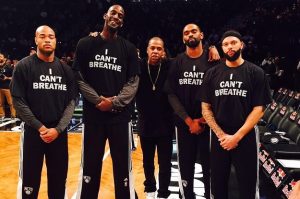
In Rocky V, Sylvester Stallone falls on hard times so he has to come out of retirement to fight this young kid, Tommy Gunn. In one scene, his trainer, Duke, tells him, “to beat this guy, you need speed – you don’t have it. Your knees can’t take the pounding. You got arthritis in your neck and calcium deposits on most of your joints. So, what we’ll be calling on is good ol’ fashion blunt force trauma. Horsepower…Every time you hit him with a shot, it’s gotta feel like he tried kissing the express train.”
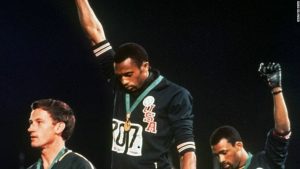
Black people are Sylvester Stallone and the young person we’re fighting is our powerlessness in politics. Our hard hitting blows will be literacy, internet access/technology, and generally being less problematic.
Literacy in that we need to be able to read power and write power. We need to understand what power is moving away from and what power is moving towards. Our texts will be society. My work in this column will map out who does, or does not, have power in what systems, why this is so, who’s made it so and who wants to keep it so. I will also present strategies that others have used in instances of power and powerlessness. Writing power is simply organizing our ideas and then organizing other people so that we can be authors of change.
Internet access in that at the most fundamental level the only thing that matters when you’re on the internet is what you choose to share. You are the author of your own narrative. Whether you choose to post hashtags that showcase black joy, beauty and excellence amidst corporate media’s never-ending super predator news stories, live stream a police officer murdering your loved one, or post your daily wins and frustrations, the internet is a place that gives any person, marginalized or other, the ability to choose exactly who and want they want to be, and a platform to display their objective reality. This gives all of us the ability to contribute to reshaping the negative social norms that facilitate our oppression. Technology is our most precious tool for increasing the number of bodies supporting our causes and increasing the dollars behind our voice. Phones are computers, cameras, global positioning and facial recognition systems, as well as social security numbers. With a phone and an app we can constantly bring awareness to our issues and reshape what other people think is okay regarding our treatment in society.
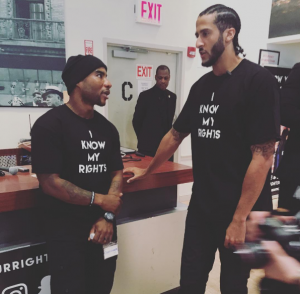
“Lastly, we have got to be less problematic towards each other. My god, y’all be whylin!!!” ~ Cory Lancaster
First off, if radicalism isn’t your thing, cool. Be quiet and get out of the way of people who are choosing to stand up to the system whose ultimate reform would benefit you. Also, be less problematic by not disrupting a status quo that allows greater percentages of the black population to flourish. Yes, I’m talking to all of you that didn’t vote in the presidential election last year. And I am screaming at all of you who do not vote in local elections!!! Local elections are where our wealth, social norms, ideas and numbers, our civic power, is most highly concentrated!!
Furthermore, Black lives matter, all of them. From the Carltons of the Black population to Pookie and them that hang on the block. From the Michelle Obamas to the Sharkeisha’s. From the heterosexual cis gendered members of our community to our LGBTQIA brothers and sisters. We as black people have got to stop demanding that our oppressors see us as red bleeding human beings deserving of 1st amendment constitutional rights, while in the same breath having the black ass audacity to deny the humanity in members of our own community!
Now, let’s redefine our relationship with politics, the government, and each other.
